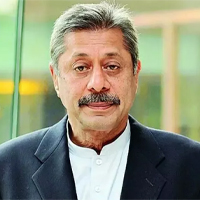Heart Transplant IN INDIA
Heart transplantation in India has become a leading option for patients with end-stage heart failure or severe coronary artery disease. With state-of-the-art hospitals and skilled cardiac surgeons, India offers high-quality medical care at a fraction of the cost compared to many Western countries. The country’s robust organ donation programs, coupled with advancements in transplant technology and post-operative care, have led to improved outcomes for patients. India’s heart transplant centers are equipped with advanced diagnostic tools, immunosuppressive therapies, and personalized treatment plans, making it a preferred destination for medical tourists seeking affordable, world-class heart transplantation services.
Latest Innovations in Heart Transplants in India
Artificial Heart Technology:
The use of mechanical devices such as the Total Artificial Heart (TAH) has improved bridging therapy for patients awaiting heart transplants, providing a reliable temporary solution for end-stage heart failure.
Bioprinting of Heart Tissues:
3D bioprinting technology is being explored to print heart tissues, enabling the creation of personalized heart models and improving transplant outcomes. In the future, bioprinted organs may offer a new avenue for transplantation.
Improved Immunosuppressive Therapies:
New immunosuppressive drugs and targeted therapies are being developed to better manage rejection while minimizing side effects, offering improved long-term outcomes for transplant recipients.
Organ Preservation Techniques:
Innovations in organ preservation, such as machine perfusion (heart preservation using a machine to pump blood through the organ), increase the viability of donor hearts, especially those from older or marginal donors.
Why is heart transplantation done ?
Heart transplants are considered when all other treatments for severe heart conditions have failed, leading to end-stage heart failure. Common causes necessitating a heart transplant in adults include:
- Cardiomyopathy: Weakening of the heart muscle that impairs its ability to pump effectively.
- Coronary Artery Disease: Severe blockages or damage to the arteries supplying the heart muscle.
- Heart Valve Disease: Advanced disease or dysfunction of heart valves not manageable by surgery or other interventions.
- Congenital Heart Defects: Structural heart problems present from birth that progress despite prior treatments.
- Ventricular Arrhythmias: Life-threatening, recurrent abnormal heart rhythms unresponsive to medication or devices like defibrillators.
- Failure of a Previous Heart Transplant: When the transplanted heart fails, another transplant may be the only option.
What is dual transplantation done along with heart transplantation?
In certain situations, a heart transplant may be performed alongside another organ transplant, known as a multiorgan transplant. This approach is available at specialized medical centers for individuals with specific conditions. Common types of multiorgan transplants include:
- Heart-Kidney Transplant: For individuals experiencing both heart failure and kidney failure.
- Heart-Liver Transplant: Suitable for those with coexisting liver and heart conditions.
- Heart-Lung Transplant: Rarely performed, this option is considered for severe combined lung and heart diseases that cannot be addressed by a single organ transplant.
When a Heart transplant may not be suitable?
A heart transplant is not the right solution for every patient. Some factors that may disqualify a candidate include:
- Advanced Age: If recovery from surgery is unlikely due to age-related complications.
- Other Severe Medical Conditions: Coexisting illnesses, such as serious kidney, liver, or lung diseases, that would significantly reduce life expectancy.
- Active Infections: Current infections can increase the risks associated with transplantation.
- Recent History of Cancer: A recent cancer diagnosis may prevent eligibility due to risks of recurrence or complications.
- Inability to Commit to Necessary Lifestyle Changes: Candidates must be ready to adopt a healthy lifestyle, including avoiding smoking, recreational drug use, and excessive alcohol consumption, to ensure the success of the transplant.
What makes India best for organ transplantation?
India leads the heart transplantation in South Asia with over 78 centres performing the procedure. Skilled clinicians, better facilities, supportive policies and affordable surgery makes India hub of the transplantation. Around 100 transplants are performed every.
Heart transplant is a must for end stage heart disease, first performed at AIIMS Delhi, setting a benchmark for the country!
Highest survival of a patient who underwent a transplant has led to 21 years of life and still alive. This shows the surgical precision, comprehensive care and great decision making by the clinicians.
Indian hospitals and clinicians believes in providing best care which are results of great decisions at an affordable cost compared globally!
What are the cost factors that influence the cost of transplantation?
The cost of a heart transplant is influenced by several factors, which can be summarized as follows:
Pre-Transplant Costs:
- Medical Evaluation: Comprehensive testing to determine patient eligibility.
- Donor Matching and Procurement: Costs related to finding and transporting a suitable donor heart.
- Hospital Admission: Pre-surgical hospital stays for stabilization or monitoring.
- Specialist Consultations: Involvement of multiple healthcare specialists, including cardiologists and transplant surgeons.
Surgical Costs:
- Surgery Expenses: Costs for the operating room, surgical team, and equipment.
- Anesthesia and Monitoring: Specialized care during the procedure.
Post-Transplant Costs:
- ICU Care: Intensive monitoring and care immediately after the transplant.
- Medications: Lifelong immunosuppressants to prevent organ rejection and other supportive drugs.
- Rehabilitation: Physical therapy and cardiac rehabilitation programs.
Long-term Follow-up:
- Regular Check-ups: Frequent follow-ups to monitor heart function and detect complications.
- Complications Management: Costs of addressing rejection, infection, or other post-transplant issues.
What is the cost of heart transplantation in India?
The average cost of heart transplantation in India is around 18,00,000 to 25,00,000 INR ($22,000 to $30,000) but it varies according to the expertise of physicians, the health status of patients and hospitals. Here is a detailed view of cost in different cities.
Why choose us?
Discover the advantages of world-class healthcare in India through our all-inclusive medical tourism services. We are dedicated to helping international patients navigate every stage of their healthcare experience, ensuring a seamless and hassle-free process. Our services cover everything from visa assistance and travel arrangements to helping you choose the right doctors, hospitals, and treatment plans. We focus on delivering affordable options without sacrificing quality, offering customized solutions that meet both your medical needs and financial considerations. With our expert team by your side, you can concentrate on your health while we take care of all the logistical details, ensuring your recovery journey is smooth, efficient, and comfortable.
What are the preparations done before the transplantation?
Before a heart transplant evaluation, various tests may be conducted to assess the functioning of your heart, lungs, and other organ systems. These may include:
- Echocardiogram: To evaluate heart structure and function.
- Electrocardiogram (ECG): To monitor the electrical activity of your heart.
- Cardiac catheterization: To measure pressures within the heart and assess blood flow.
- MVO2 test (exercise stress test): To determine your heart’s capacity during physical activity.
- Chest X-ray: To visualize the size and condition of your heart and lungs.
- Pulmonary function tests: To evaluate lung capacity and function.
- Doppler ultrasound of the lower extremities and carotid arteries: To check for blockages or blood flow issues.
- Abdominal and pelvic ultrasound: To assess organ health.
- Comprehensive blood tests: To evaluate overall health and detect any underlying issues.
- The transplant team will carefully review these results to determine if a heart transplant is the most suitable treatment. Whenever possible, alternative therapies for heart failure will be considered before proceeding with transplantation.
The transplant team will carefully review these results to determine if a heart transplant is the most suitable treatment. Whenever possible, alternative therapies for heart failure will be considered before proceeding with transplantation.
What is the post-transplantation care and lifestyle modifications?
After a heart transplant, lifelong care and lifestyle changes are essential for recovery and maintaining the new heart. Key components include strict adherence to immunosuppressive medications to prevent organ rejection and regular medical follow-ups with blood tests, echocardiograms, and biopsies to monitor heart function and detect complications early.
Top Heart Transplant Doctors in India
The right doctor to consult for a Heart Transplant case.
Dr. Bhaba Nanda Das
Year of experience: 48
HOD and Senior Consultant at Indraprastha Apollo Hospital, Delhi
Dr.Naresh Trehan
Year of experience: 40 years of experience
Dr. Z S Meharwal
Year of experience: 32
HOD and Senior Consultant at Fortis Escorts Heart Institute, Delhi
Dr. Sandeep Attawar
Year of experience: 22 years of experience
Dr. Dinesh Khullar
Year of experience: 37
Consultant at Max Super Speciality Hospital, Saket, Delhi
Dr. Rahul Bhargava
Year of experience: 23+ Years of Experience
Senior Consultant at Fortis Memorial Research Institute, Gurgaon
Dr. Rahul Naithani
Year of experience: 6 Year of Experience
Dr. Vikas Dua
Year of experience: 22
Consultant at Fortis Memorial Research Institute, Gurgaon
Dr. Vivek Vij
Year of experience: 20
Senior Consultant at Fortis Escorts Heart Institute, Delhi
Looking For The Best Doctor & Hospital?
Fill up the form and get assured assitance within 24 hrs!
What is the success rate of heart replacement in India?
Out of 100 patients, 74 patients have lived for more than 21 years. This is huge compared to other countries. Yes, heart transplants depend on various factors and the patient itself. Since heart transplant is a life changing experience and is often dealt well by the patients undergoing it. Transplantation often requires tough mental conditions, the patient has to discipline and follow a healthy lifestyle.
Heart transplantation patients are under strict supervision to decrease the risk of heart failure. Thus regular monitoring and follow up is important. In India we make comprehensive treatment plans for every patient to increase longevity!
The data clearly indicates the success and soul reason for making India best for heart transplantation in South Asia.
FAQs
- What is a heart transplant, and when is it needed?
A heart transplant is a surgical procedure to replace a diseased or failing heart with a healthy heart from a deceased donor. It is typically recommended for patients with severe heart failure or end-stage heart disease when other treatments are no longer effective.
- How long does it take to recover from a heart transplant?
Recovery varies for each patient but generally involves a hospital stay of 2-3 weeks, followed by several months of rehabilitation and medical monitoring. Full recovery may take 6-12 months, depending on individual progress and adherence to post-transplant care.
- What are the risks associated with a heart transplant?
Key risks include organ rejection, infections due to immunosuppressive medications, complications from surgery, and side effects from long-term medication use. Regular follow-ups and medication adherence minimize these risks.
- How long does a transplanted heart last?
With proper care, a transplanted heart can last 10-15 years or more. Lifelong monitoring and healthy lifestyle changes are essential for maintaining heart function.
- What lifestyle changes are required after a heart transplant?
Post-transplant care includes taking immunosuppressants, eating a heart-healthy diet, avoiding smoking and alcohol, exercising regularly, managing stress, and attending regular medical check-ups to ensure the longevity of the transplanted heart.
Get FREE Evaluation
Treatment plan and quote within within 24 hrs!
Let us help you
Get your personalized Estimate Now
Top Doctors & Surgeons in India
Best Hospitals in India
Best Treatments in India
Indian Medical Visa From
Copyright © 2025 Al Afiya Medi Tour | All Rights Reserved.


































